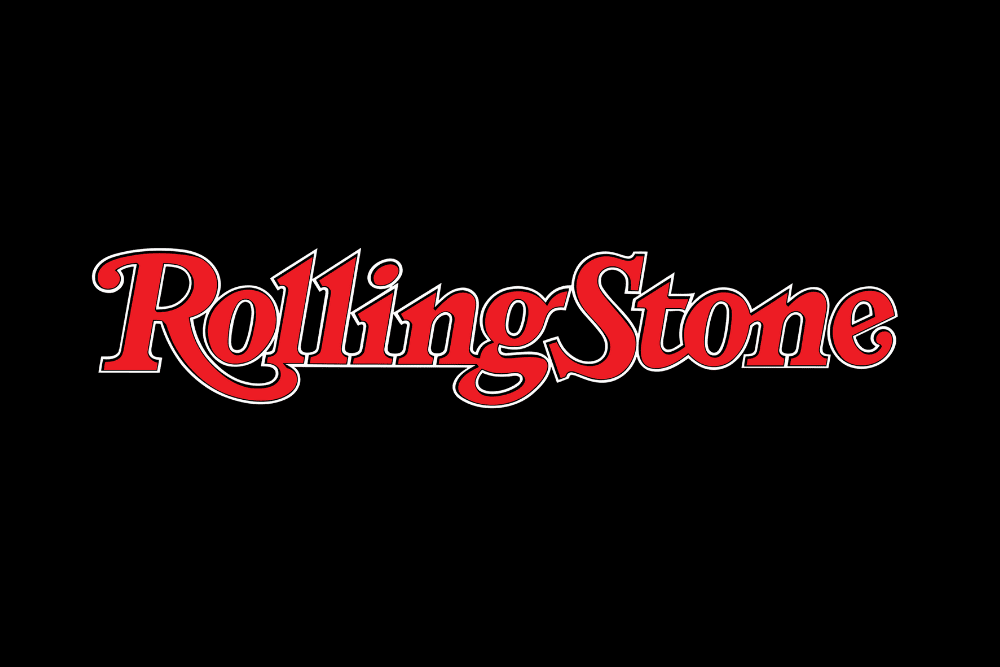When a Coworker Crosses the Line: Your Right to Take Legal Action
Yes, you can sue your coworker directly for sexual harassment in California. Unlike many states where only employers face liability, California law holds individual harassers personally accountable for their actions. If you’re facing unwanted sexual advances, inappropriate comments, or a hostile work environment created by a colleague, you have more options than you might realize. This unique aspect of California law means that harassers can’t hide behind their employer’s corporate shield—they face personal financial consequences for their misconduct, regardless of whether your employer knew about or addressed the harassment.
💡 Pro Tip: Document every incident of harassment immediately, including dates, times, witnesses, and exact words or actions. This contemporaneous evidence becomes crucial when pursuing individual liability claims.
Ready to take a stand against workplace harassment? MSD Lawyers is here to help you navigate your legal options with clarity and confidence. Don’t wait to secure your future—reach out today at 213-401-0823 or contact us to discuss your case.
California’s Powerful Personal Liability Laws for Workplace Harassment
Under California Government Code Section 12940(j)(3), an employee is personally liable for any harassment they perpetrate, regardless of whether the employer knows or should have known of the conduct. This groundbreaking provision means your harassing coworker faces direct legal consequences for their behavior. The Fair Employment and Housing Act (FEHA) applies to public and private employers, labor organizations, apprentice training programs, employment agencies, and licensing boards, creating comprehensive protection across virtually all California workplaces. When consulting with a sexual harassment lawyer in Los Angeles, you’ll learn that harassment is prohibited in all workplaces, even those with only one employee or independent contractor on staff.
California law recognizes that sexual harassment includes unwanted sexual advances or visual, verbal, or physical conduct of a sexual nature, including gender-based harassment of a person of the same sex as the harasser. This broad definition ensures protection regardless of the harasser’s or victim’s gender. An employee, applicant, unpaid intern, volunteer, or contractor may file a complaint of harassment, expanding protection beyond traditional employees. The California Civil Rights Department (CRD) is the state agency charged with protecting Californians from unlawful discrimination in employment, providing an additional avenue for seeking justice beyond civil lawsuits.
💡 Pro Tip: Personal liability means harassers’ personal assets—homes, savings, investments—can be at risk in judgments, making individual lawsuits a powerful deterrent and remedy.
The Path from Harassment to Justice: Your Legal Timeline
Taking action against a harassing coworker requires understanding both the legal process and critical deadlines. California provides multiple pathways for holding individual harassers accountable, each with specific requirements and timeframes. Working with a sexual harassment lawyer in Los Angeles ensures you meet all deadlines while building the strongest possible case against your harasser.
- Immediate Response (Days 1-7): Report harassment to your employer in writing, even though it’s not required for individual liability. Failure to report harassment in any way may impact your ability to further pursue remedies against your employer.
- Documentation Phase (Ongoing): Gather evidence including emails, texts, witness statements, and any physical evidence. If sexual harassment rises to the level of violence or assault, victims should immediately contact law enforcement.
- Administrative Filing (Within 3 years): File a complaint with the California Civil Rights Department. This preserves your rights and may lead to a right-to-sue letter.
- Demand Letter (Month 1-2): Your attorney sends a formal demand to the harasser outlining claims and seeking resolution.
- Lawsuit Filing (If needed): File a civil lawsuit against the individual harasser, potentially including claims for assault, battery, or intentional infliction of emotional distress.
- Discovery and Resolution (Months 3-12): Exchange evidence, take depositions, and work toward settlement or trial.
💡 Pro Tip: California’s statute of limitations for harassment claims is generally three years from the last act of harassment, but acting quickly preserves evidence and witness memories.
How MSD Lawyers Maximizes Your Recovery Against Individual Harassers
At MSD Lawyers, we understand the courage it takes to stand up to a harassing coworker. Our approach combines aggressive pursuit of individual liability with strategic evaluation of all potential defendants. Since supervisors and coworkers remain personally liable for their own acts of harassment under California law, we often pursue claims against both the individual and the employer, maximizing your potential recovery. A sexual harassment lawyer in Los Angeles from our firm will assess whether your harasser has sufficient assets to satisfy a judgment and develop strategies to collect any awards.
We also evaluate employer liability, as an employer is vicariously liable for a hostile work environment created by a supervisor. For non-supervisory coworkers, harassment of an employee by another employee (non-supervisor) is unlawful if the entity knows or should have known of the conduct and fails to take immediate corrective action. This dual approach—pursuing both individual and employer liability—often leads to better outcomes for our clients.
💡 Pro Tip: Request a asset search on your harasser early in the case to determine collection potential and inform settlement strategy.
Understanding the Unique Power of FEHA’s Personal Liability Provision
California’s personal liability law stands apart from federal protections. While harassment is a form of employment discrimination that violates Title VII of the Civil Rights Act of 1964, the Age Discrimination in Employment Act of 1967, and the Americans with Disabilities Act of 1990, these federal laws don’t allow individual liability. Only California and a handful of other states hold harassers personally accountable. When you work with a sexual harassment lawyer in Los Angeles, they’ll explain how this California-specific protection gives you leverage many harassment victims in other states lack.
What Makes California Different
The key distinction lies in the statutory language. Under federal law, only employers face liability, but California explicitly states that an employee is personally liable for harassment regardless of employer knowledge. This means even if your employer had perfect anti-harassment policies and took immediate action, your harasser still faces personal liability for their conduct. It is unlawful for any person to aid, abet, incite, compel, or coerce the doing of any acts forbidden under FEHA, further expanding potential liability to those who encourage or facilitate harassment.
💡 Pro Tip: Personal liability claims often motivate faster settlements, as individuals typically want to avoid lengthy litigation risking their personal assets.
Building Your Strongest Case: Evidence That Proves Individual Harassment
Success in individual harassment lawsuits depends on proving the harasser’s conduct met legal standards. Not all harassing conduct violates the law, even if it is because of a legally protected characteristic. Federal law does not prohibit simple teasing, offhand comments, or isolated incidents that are not extremely serious. Similarly, petty slights, annoyances, and isolated incidents (unless extremely serious) will not rise to the level of illegality. Your sexual harassment lawyer in Los Angeles will help you understand whether your situation meets the legal threshold.
Meeting the Legal Standard
To be unlawful, conduct must create a work environment that would be intimidating, hostile, or offensive to reasonable people. The EEOC determines whether harassment is severe or pervasive enough to be illegal on a case-by-case basis, considering the entire record including the nature of the conduct and context. Loss of tangible job benefits is not necessary to establish harassment—the hostile environment itself violates the law. Anti-discrimination laws also prohibit harassment against individuals in retaliation for filing a discrimination charge, testifying, or participating in any way in an investigation, proceeding, or lawsuit under these laws.
💡 Pro Tip: Keep a detailed harassment log using a bound notebook or secure app, noting the impact on your work performance and emotional well-being after each incident.
Strategic Considerations: When to Sue Individuals vs. Employers
Deciding whether to sue your coworker individually, your employer, or both requires careful strategic planning. Each approach has advantages and challenges that a sexual harassment lawyer in Los Angeles can help you navigate. Individual lawsuits send a powerful message and may result in quicker settlements, but collection can be challenging if the harasser lacks substantial assets. Employer lawsuits typically offer deeper pockets but may require proving additional elements like employer knowledge or negligence.
The Power of Combined Claims
In many cases, the strongest approach involves suing both the individual harasser and the employer. Employers are subject to vicarious liability for unlawful harassment by supervisors with immediate or successively higher authority over the employee. For coworker harassment, employers may be responsible for harassment by nonemployees if they know or should have known of the conduct and fail to take immediate and appropriate corrective action. This dual strategy often creates settlement pressure from multiple angles. Additionally, entities are required to take all reasonable steps to prevent harassment from occurring, and failure to meet this obligation strengthens your employer liability claim.
💡 Pro Tip: Consider whether your harasser has professional liability insurance or homeowner’s coverage that might cover intentional acts—these policies sometimes provide unexpected sources of recovery.
Frequently Asked Questions
Understanding Your Rights Against Individual Harassers
Many victims don’t realize they can hold coworkers personally accountable for sexual harassment. These questions address common concerns about pursuing individual liability claims in California.
💡 Pro Tip: Prepare a timeline of all harassment incidents before meeting with an attorney—this helps evaluate both individual and employer liability claims efficiently.
Taking Action and Protecting Yourself
Navigating the legal process while still working with your harasser raises unique challenges. Understanding your options helps you make informed decisions about your future.
💡 Pro Tip: California law protects against retaliation for filing harassment complaints—document any negative treatment after reporting harassment or filing a lawsuit.
1. Can I really sue my coworker personally for sexual harassment in California?
Yes, California Government Code Section 12940(j)(3) explicitly makes employees personally liable for harassment they commit, regardless of employer knowledge. This means you can sue your coworker directly and potentially recover damages from their personal assets, including wages, property, and savings accounts.
2. What damages can I recover from an individual harasser versus my employer?
You can seek similar damages from both: compensation for emotional distress, lost wages, medical expenses, and punitive damages. However, employers typically have deeper pockets and insurance coverage, while individual recovery depends on the harasser’s personal assets and possible insurance coverage.
3. Do I have to report harassment to my employer before suing my coworker individually?
No, California law doesn’t require reporting to your employer before suing an individual harasser. However, reporting creates a paper trail and may trigger employer liability if they fail to respond appropriately. Your sexual harassment lawyer in Los Angeles can advise on the strategic benefits of reporting.
4. How do I work at the same company as someone I’m suing for harassment?
This challenging situation often resolves through employer intervention, restraining orders, or negotiated separations. Many harassers resign or transfer once facing personal lawsuits. Your attorney can seek workplace protections through court orders if needed.
5. What if my harasser doesn’t have money or assets to pay a judgment?
While collection challenges exist, judgments remain valid for 10 years and can be renewed. Harassers’ future wages can be garnished, and assets acquired later can be seized. Many harassers find ways to pay rather than face ongoing collection efforts affecting their credit and financial future.
Work with a Trusted Sexual Harassment Lawyer
Individual liability for sexual harassment gives California workers unique power to hold harassers accountable. This direct accountability often motivates behavioral change and compensates victims when employers fail to act. Understanding these rights and how to enforce them requires guidance from attorneys who handle these complex cases regularly. Whether your harassment occurred in downtown Los Angeles or anywhere across California, the law protects your right to work free from sexual harassment and to hold perpetrators personally responsible for their actions.
If you’re ready to stand up and assert your rights against workplace harassment, MSD Lawyers is here to guide you every step of the way. Don’t let intimidation hold you back—secure your future today by reaching out to us. Call 213-401-0823 or contact us for a personalized consultation.













